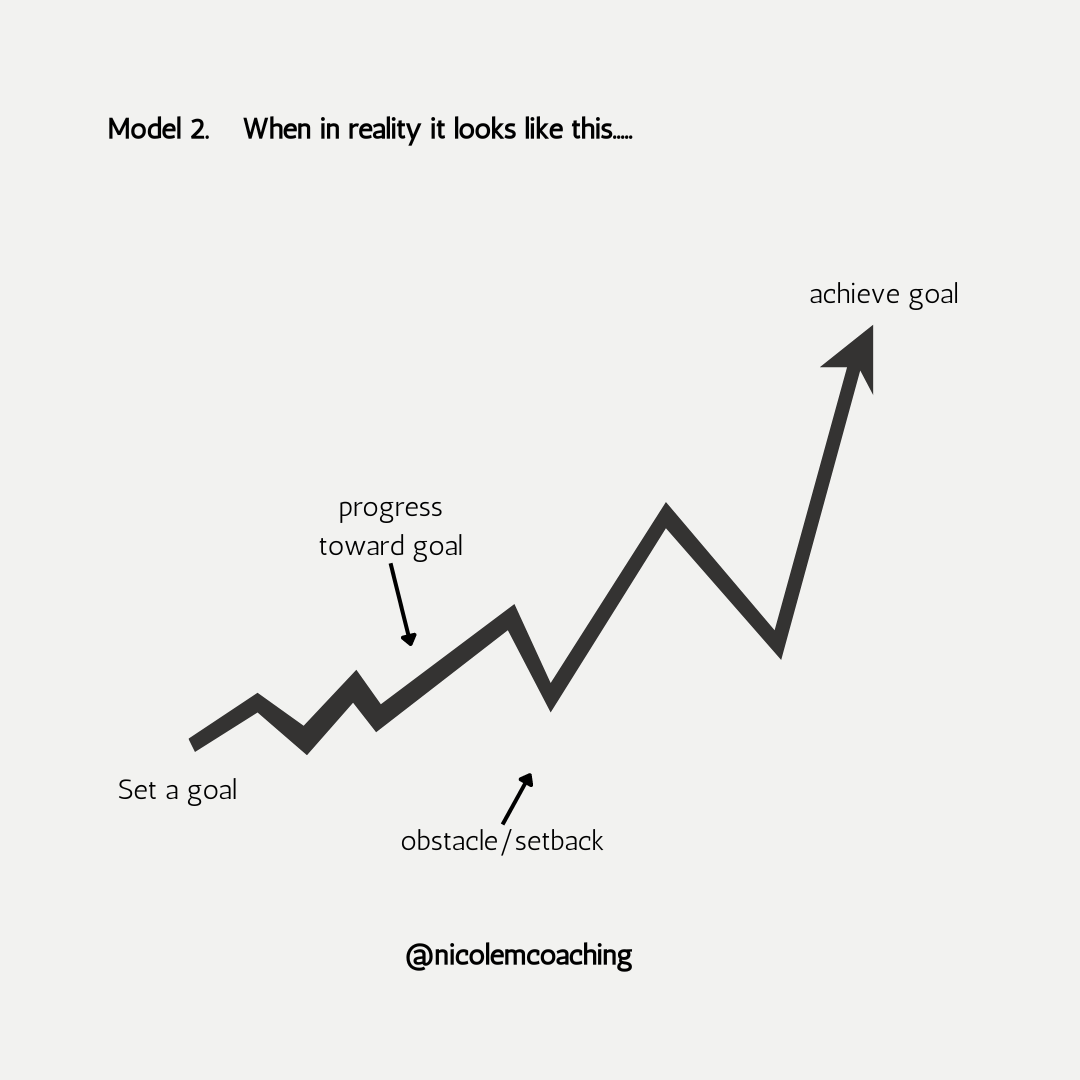Breaking Down the Consistency Myth.
Let's talk about the consistency myth. Most perceive consistency as a linear process. The assumption is that you set a goal, take forward action, and then achieve the goal. Easy, right?
Well, if you've ever attempted to be consistent at something you know first hand things are never this easy. That's because this linear perception of consistency is a myth. If you're operating from this perspective chances are you're feeling really frustrated with yourself and your inability to be consistent.
So let’s debunk this myth and get you on the path to greater consistency.
Linear Consistency
The problem with this perception of consistency is it only anticipates 100% progress and doesn’t account for real-life setbacks, obstacles, or any variable impacting forward action, etc.
This model demands perfection.
When you inevitably fall short of perfection, your brain tells you that you’re:
Unmotivated
Uncommitted
Undisciplined
In a word, you feel like you’ve failed. This kicks you into a fight or flight response where you either recommit to this unrealistic model of consistency or you drop it all together believing that you’re incapable of being consistent, so why even try?
A Realistic Model of Consistency
This second model of consistency is more realistic because it anticipates for real-life setbacks and plans accordingly for them. With this model, perfection is never the approach. Instead you hold yourself accountable to taking routine actions that are moving you closer and closer to the outcome you desire.
Viewing consistency through this lens helps you to stay on course when things don’t go as planned or your progress gets temporarily derailed. The only requirement to getting back on track is solving for the barrier so that you can move forward again.


